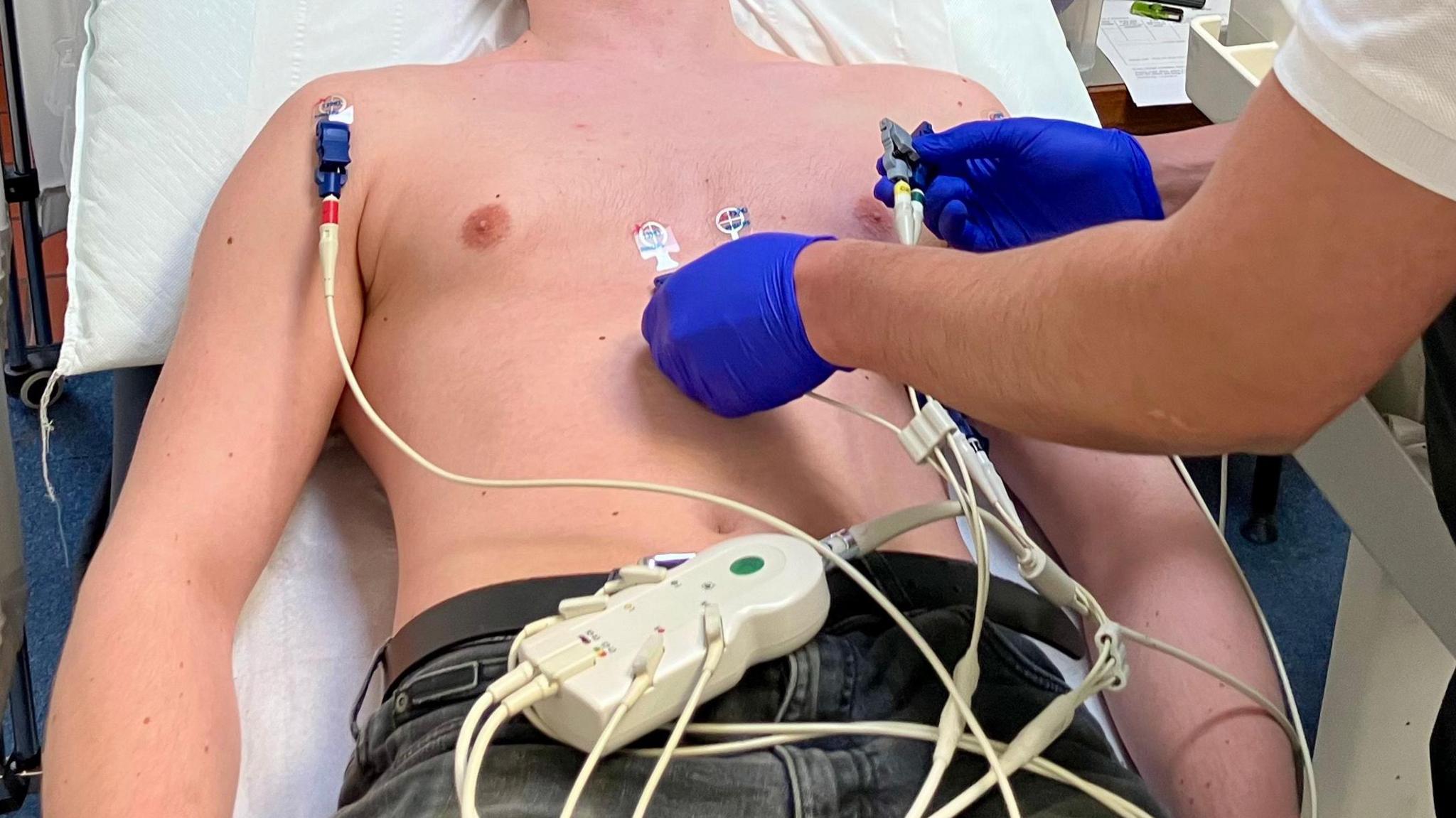Cardiac arrest patient, 17, urges people to learn CPR
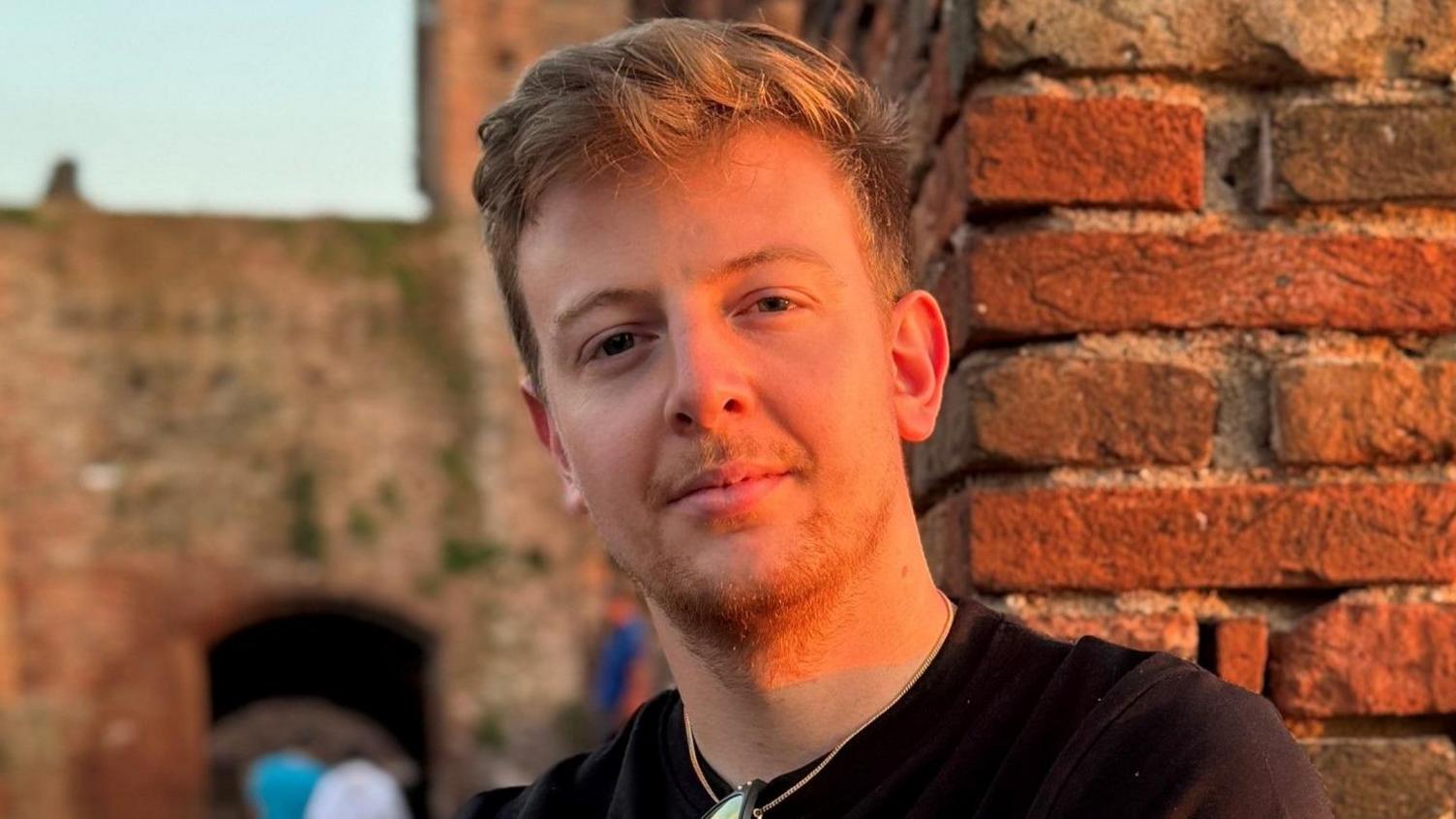
Benjamin Culff was taken to hospital and thought he lost about two days' memory
- Published
"The scary nature of cardiac arrest is that there really, really is no prior warning and you could be doing your day-to-day tasks and then it just happens."
Benjamin Culff was 17 and working at a restaurant in Tamworth, Staffordshire, in 2017 when he had a cardiac arrest.
A colleague who had not had any formal CPR training started performing it and a defibrillator was brought.
Several people did "what they needed to do and definitely saved my life", said Mr Culff, who now lives and works in Leamington Spa in Warwickshire.
"But, yeah, there was one guy in particular that was on the phone to the ambulance service and doing the CPR and using the defibrillator."
He had collapsed and the final thing he said he remembered was going downstairs to collect some glasses.
He said paramedics and others watching CCTV observed him have "a little wobble and then... [go] down on the ground".
'Only found on autopsies'
Fewer than one in 10 adults were still alive 30 days after an out-of-hospital cardiac arrest, a new report from the University of Warwick shows.
In children, the chances of survival are slightly better at 13%, or better than one in eight.
It later emerged that Mr Culff had a genetic condition, which could be treated.
Since he was 10, he said about once a year he would "have fits and these were tested for epilepsy" and it was "maybe "[thought] that I had an overactive thyroid".
The video game designer added: "They really did try and dig deep to find this, but my condition, my genetic condition, is usually only found on autopsies.
"[That's] because you have to do a very specific test to find it and usually you have to go through cardiac arrest or have history of cardiac arrest in the family."
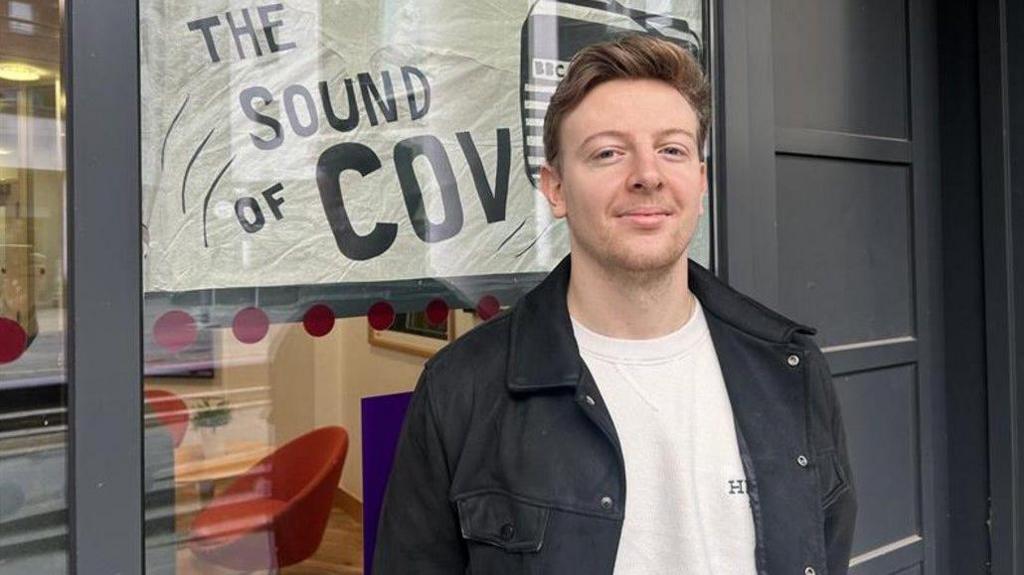
Mr Culff said there were instructions on defibrillators on how to use them
Mr Culff, who was taken to hospital, is now campaigning to get more defibrillators installed and to raise awareness of CPR training.
He said there were instructions on defibrillators on how to use them and that 999 call handlers could direct people to the nearest one.
Born and raised in Tamworth, Mr Culff highlighted that charity Tamworth Have a Heart was focused on getting more defibrillators in the town.
He said: "Clinically I was dead... Just do anything you can."
He added that even watching CPR performed on TV was better than nothing.
"Good CPR is really important, that's why I encourage everyone to go out there and learn what good CPR is," he said.
"But just doing anything you can to help someone in their time of need will do better than just standing there and doing nothing."
CEO at Resuscitation Council UK James Cant said: "A cardiac arrest can happen to anyone, anywhere and at any time.
"Every second counts during the ultimate medical emergency and if CPR is not done quickly, the person will die.
"It only takes a few minutes to learn this lifesaving skill, which you can access via our website, external."
Get in touch
Tell us which stories we should cover in Warwickshire
Follow BBC Coventry & Warwickshire on BBC Sounds, Facebook, external, X, external and Instagram, external.
- Published8 September
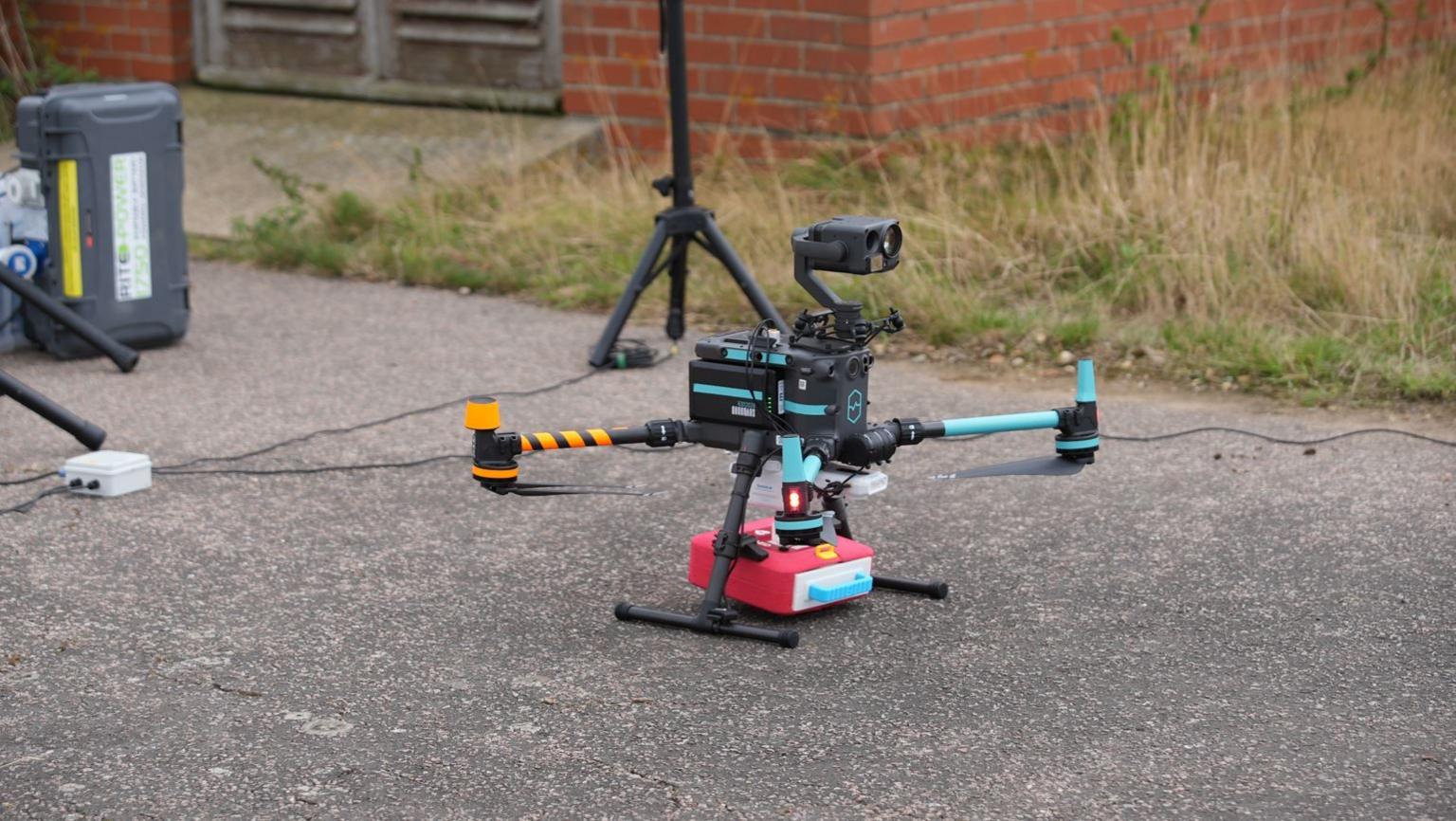
- Published19 October
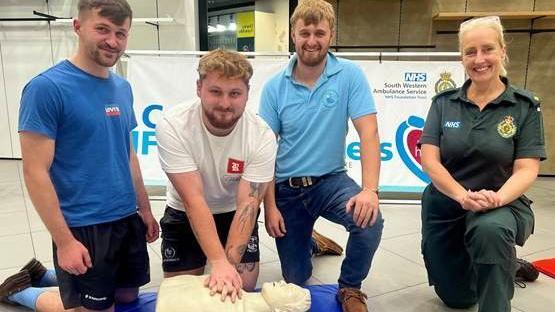
- Published16 October
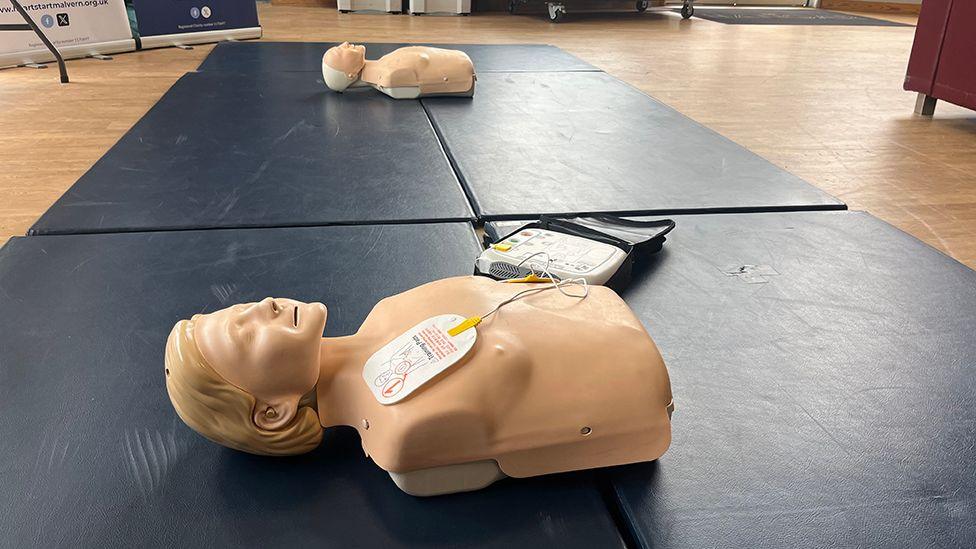
- Published30 April
